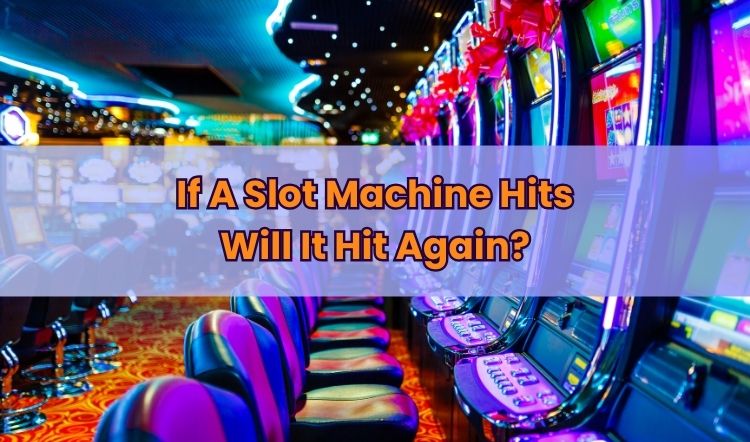
When playing online slot machines, many people wonder if a winning spin means they're on a winning streak or if the slot is going to go a while without paying out. It's a common question and one that comes up often.
The truth is, each spin of a slot machine is an independent event. This means that the result of one spin does not affect the outcome of the next spin.
Slot machines use Random Number Generators (RNGs) to ensure fairness. This technology guarantees that every spin is completely random and that the chances of winning on a specific slot game remain the same every time you play.
So, if you win on one spin, it doesn't mean you're more likely to win on the next one. Similarly, if you've had a string of losses, it doesn't mean a win is just around the corner.
This element of unpredictability is what makes slot games exciting and fun. Always remember to gamble responsibly and understand that winning is never guaranteed.
What Triggers a Jackpot On a Slot Machine?
A jackpot on a slot machine is usually triggered by landing a specific combination of symbols on the reels.
Jackpot combinations vary depending on the game you're playing. Each slot has its own rules, so it's a good idea to check the game's paytable before you start playing. The paytable shows you which symbols you need to hit the jackpot.
Some slot machines also offer progressive jackpots. These are jackpots that grow over time as more players place their bets. Progressive jackpots can be triggered randomly or by landing a special combination of symbols.
Remember that just like regular spins, each spin for a jackpot is entirely random. The RNG ensures that every spin has the same chance of triggering a jackpot, making it fair for everyone.
Ultimately, hitting a jackpot is down to chance. There's no guaranteed way to win, so it's important to play responsibly and enjoy the game for what it is.
How Often Do Slot Machines Pay Out?
The payout frequency of slot machines varies depending on several factors, such as the game design and the RNG used.
Each slot game has a Return to Player (RTP) percentage. This is a theoretical figure that indicates how much of the money wagered on the game it averages out as paying back to players over time. For example, a slot with an RTP of 95% averages out to return £95 for every £100 wagered in the long run, in theory.
However, it's important to remember that RTP does not guarantee results, especially in the short term. You might win more or less than the RTP suggests on any given session, or you may win nothing at all.
Slot games can also have different levels of volatility. High-volatility slots are more likely to pay out larger amounts, but wins land less frequently, while low-volatility slots are more likely to provide smaller, more regular wins. However, this is also a theoretical measurement because slots are random.
Ultimately, there's no set frequency for how often slot machines pay out. It's all down to chance and the specific game mechanics. Always keep in mind that each spin is independent, and outcomes are entirely random.
To get an idea of a game's payout behaviour, you can check out its RTP and volatility, usually listed in the game rules or paytable. This information can help you choose a game that matches your preferences and play style, but it doesn't necessarily mean that your session is going to reflect these values.
Do Slot Machine Payouts Slow Down After Hitting The Jackpot?
A common myth is that slot machines pay out less frequently after hitting a jackpot. However, this is not true.
Slot machines operate using an RNG. This technology ensures that each spin is independent of the previous one. The RNG doesn't remember past spins, so whether you've just hit the jackpot or not doesn't affect your chances of winning on the next spin.
The odds of hitting a winning combination remain the same on every spin of a given slot. Each result is completely random and determined at the moment you press the spin button.
Slot machines don't "slow down" or get "tighter" after a big win. Any perception of fewer payouts is purely coincidental and a result of the randomness of the game.
It's important to play responsibly and not to chase wins or expect patterns in slot machine behaviour. Enjoy the game for its entertainment value and always play within your limits.
Should You Play a Slot Machine That Has Just Hit?
It's natural to wonder if you should play a slot machine that has just hit the jackpot or awarded a win. Many people think that a machine is "hot" or "cold" depending on recent wins or losses.
However, each spin on a slot machine is independent. This means that the outcome of one spin does not affect the outcome of the next spin.
The RNGs used in slot machines ensure that every spin is random. This makes the game fair and random, ensuring that the odds of winning on any given spin of a slot game are the same, whether it follows a jackpot or not.
So, whether a machine has just paid out a big win or not should not influence your decision to play. Instead, consider your budget, the game's theme, RTP, and volatility to decide if it's the right game for you.
Always enjoy slot games as a form of entertainment, and remember to gamble responsibly. Winning is entirely down to chance, and there is no pattern to outcomes. It's important to always play within your limits and never chase losses.
